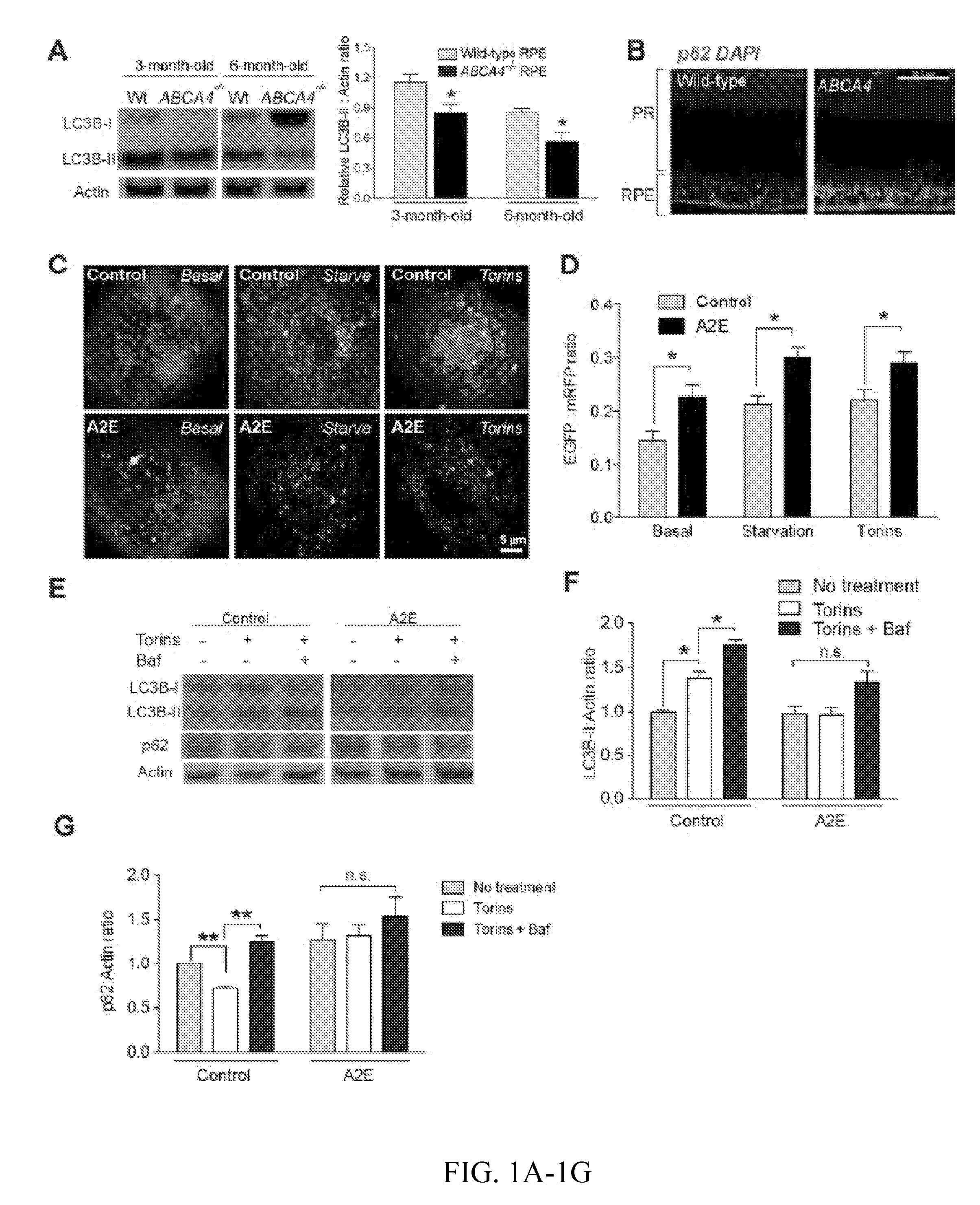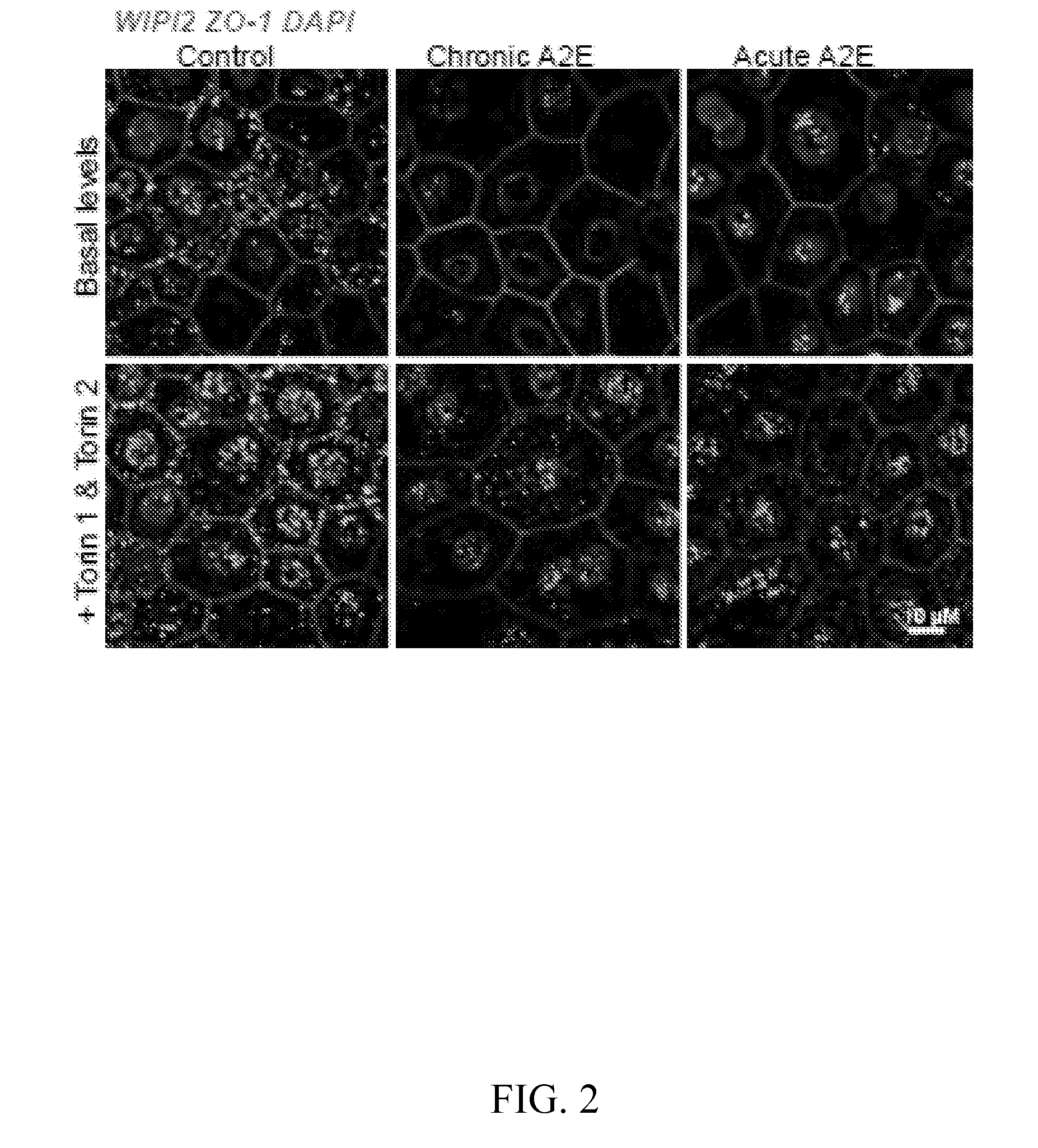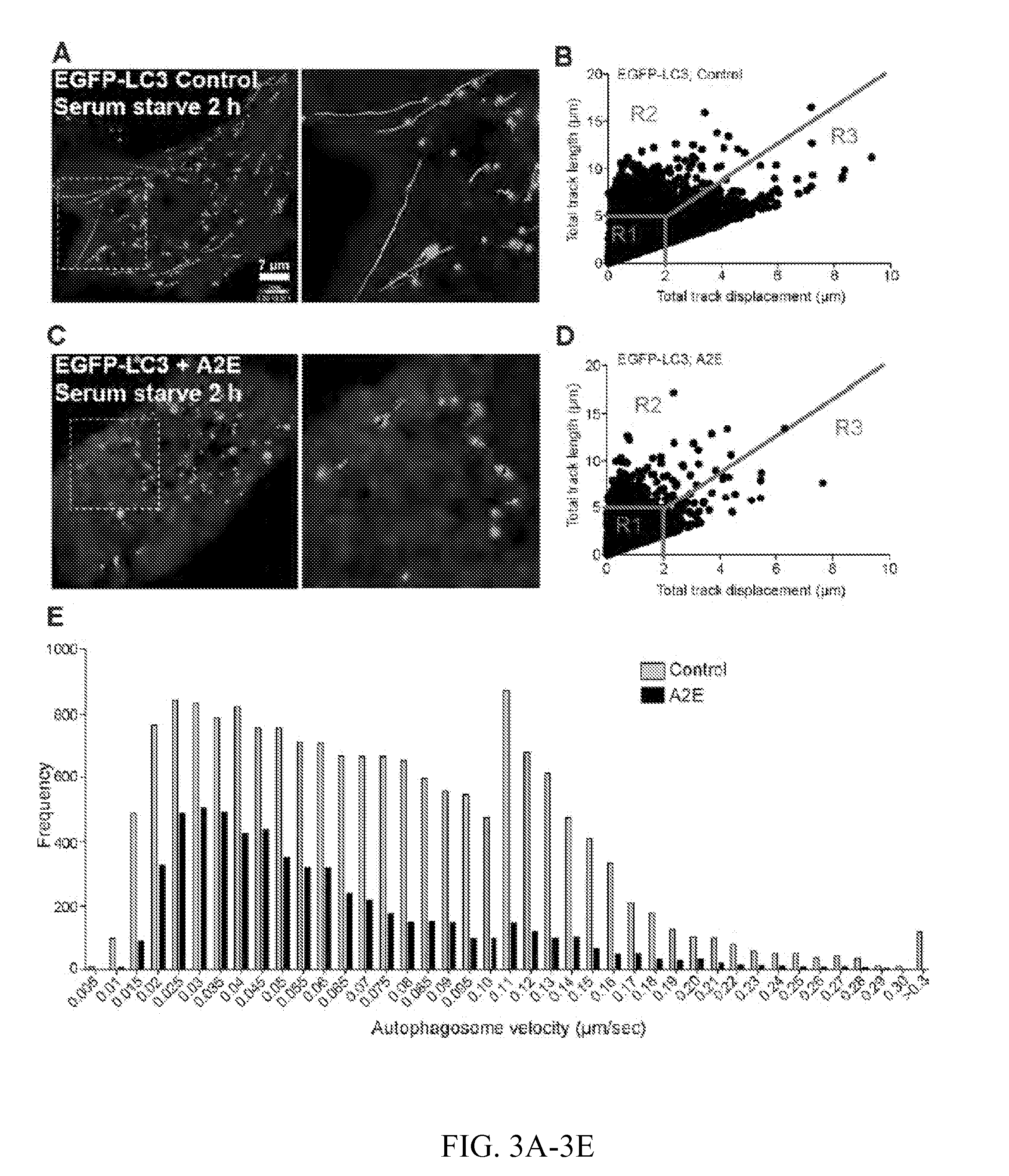Use of Inhibitors of Acid Sphingomyelinase to Treat Acquired and Inherited Retinal Degenerations
- Summary
- Abstract
- Description
- Claims
- Application Information
AI Technical Summary
Benefits of technology
Problems solved by technology
Method used
Image
Examples
example 1
Cholesterol-Mediated Activation of Acid Sphingomyelinase Disrupts Autophagy in the Retinal Pigment Epithelium
[0051]Macroautophagy (hereafter referred to as autophagy) is a bulk degradative pathway where double-membraned structures called autophagosomes enclose damaged proteins and organelles. Fusion of autophagosomes with the endo-lysosomal system delivers hydrolytic enzymes required to degrade the sequestered cytosolic components (Rubinsztein et al., 2007; Choi et al., 2013). Formation of the autophagosome is initiated by the activation of autophagy-related (Atg) proteins in a hierarchical manner. The molecular machinery of autophagy is highly conserved and primarily regulated by the mammalian target of rapamycin (mTOR), in response to the nutrient and metabolic status of the cell. Autophagy occurs at a basal level in most cells and is increased under conditions of stress, when it promotes survival by repurposing degraded material to support metabolism within the cell (Codogno et ...
example 2
ASMase Inhibition Restores Cell-Surface Complement Regulatory Protein Levels in RPE with Bisretinoids
[0081]The alternative pathway of the complement system has been implicated in the pathogenesis of AMD. The final step of the complement pathway is the formation of the membrane attack complex (MAC), which forms pores in cell membranes and can cause cell lysis. Lipofuscin and A2E have been shown to activate complement components in mouse models of Stargardt disease and in cultured RPE (Radu et al., 2014; Zhou et al., 2009). The RPE have numerous mechanisms that protect against complement-mediated damage such as (a) cell-surface complement regulatory proteins like CD55, CD59 and CD46, which prevent specific steps of MAC assembly and (b) resealing MAC pores by lysosome exocytosis.
[0082]CD55 and CD59 are GPI-anchored proteins whose delivery to the plasma membrane depends on lysosomal cholesterol (Mayor et al., 2004). Cholesterol depletion speeds the transport of CD55 and CD59 to the cel...
example 3
Genetic Validation of ASMase as a Therapeutic Target in RPE with Bisretinoids
[0090]To establish that inhibition of ASMase does indeed decrease tubulin acetylation and increase autophagy in RPE with bisretinoids, we used shRNA-mediated knockdown of ASMase.
[0091]Materials and Methods: Primary porcine RPE were transfected with plasmids expressing RFP-tagged shRNA constructs (Origene) to porcine ASMase (SMPD1 gene) and exposed to A2E 48 h after transfection as described previously. Cells were fixed 48 h after A2E loading and stained for acetylated tubulin or LC3 to label autophagosomes. Protein knockdown was confirmed by immunoblotting for ASMase.
[0092]Results: We tested 4 different shRNA constructs and found that construct D elicited the most robust knockdown of ASMase in porcine RPE (FIG. 12A). Similar to our data with desipramine, depletion of ASMase decreased acetylated tubulin in RPE with bisretinoids (FIG. 12B). Compare immunostaining for ASMase (green) and acetylated tubulin (whi...
PUM
| Property | Measurement | Unit |
|---|---|---|
| Mass | aaaaa | aaaaa |
| Mass flow rate | aaaaa | aaaaa |
| Mass flow rate | aaaaa | aaaaa |
Abstract
Description
Claims
Application Information
 Login to View More
Login to View More - R&D
- Intellectual Property
- Life Sciences
- Materials
- Tech Scout
- Unparalleled Data Quality
- Higher Quality Content
- 60% Fewer Hallucinations
Browse by: Latest US Patents, China's latest patents, Technical Efficacy Thesaurus, Application Domain, Technology Topic, Popular Technical Reports.
© 2025 PatSnap. All rights reserved.Legal|Privacy policy|Modern Slavery Act Transparency Statement|Sitemap|About US| Contact US: help@patsnap.com



